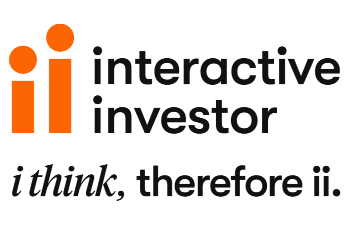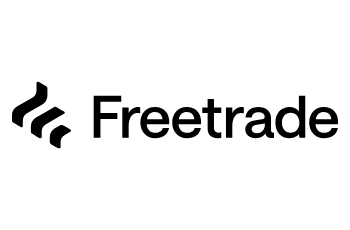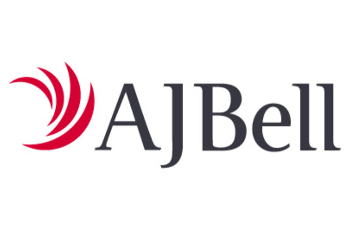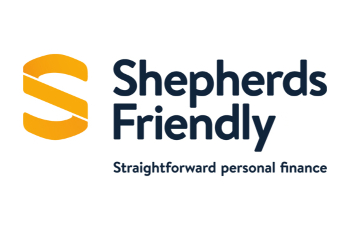This comparison simply includes all savings accounts.
Money Market Funds UK
SPECIAL OFFER: £100 free trades. New customers opening an ISA or GIA. Existing customers adding an ISA only No minimum deposit required. End date 28 February 2026
Disclaimer: The value of your investments can fall as well as rise, so you could get back less than you paid in.
Disclaimer: The value of your investments can fall as well as rise, so you could get back less than you paid in.
Disclaimer: Rate is indicative of what you might get, based on the annualised yield to maturity. This forecast is not a reliable indicator of future performance
Disclaimer: The value of your investments can fall as well as rise, so you could get back less than you paid in.
Disclaimer: The value of your investments can fall as well as rise, so you could get back less than you paid in.
Disclaimer: Rate is indicative of what you might get, based on the annualised yield to maturity. This forecast is not a reliable indicator of future performance
Guide to Money Market Funds in the UK
Understanding Money Market Funds
1. Definition of Money Market Funds
Money market funds are collective investment schemes that pool money from multiple investors to invest in low-risk, short-term debt securities and cash equivalents. These funds are managed by professional fund managers who aim to maintain a stable net asset value (NAV) of £1 per share, ensuring that investors can preserve their capital while earning interest.
2. Types of Money Market Funds in the UK
In the UK, there are several types of money market funds, each catering to different investor preferences and risk appetites. Some common types include:
- Government Treasury Funds: These funds primarily invest in short-term debt securities issued by the UK government, making them one of the safest options with minimal credit risk.
- Corporate Money Market Funds: These funds focus on short-term debt securities issued by corporations, providing slightly higher returns than government funds but with a slightly higher level of risk.
- Tax-Exempt Money Market Funds: These funds invest in short-term debt securities issued by local authorities and public sector bodies, offering tax benefits to eligible investors.
3. Key Characteristics and Features of Money Market Funds
Before investing in money market funds, it's crucial to understand their main characteristics and features:
- Liquidity: Money market funds offer high liquidity, meaning investors can typically buy or sell their shares on any business day without significant price fluctuations.
- Low Risk: Money market funds are considered low-risk investments due to their focus on short-term, high-quality debt securities.
- Yield: While money market funds provide better returns compared to traditional savings accounts, they usually offer lower yields than riskier investment options like equities or bonds.
- Expense Ratios: Investors should consider the expense ratios of money market funds, as lower expenses can have a positive impact on overall returns.
- Credit Quality: The credit quality of the underlying securities can vary among different money market funds, influencing their risk levels.
How do Money Market Funds Work?
1. Investment Objectives and Strategies
Money market funds aim to achieve three primary investment objectives:
- Capital Preservation: The main goal of money market funds is to preserve investors' capital while generating a modest level of income.
- Liquidity Management: These funds focus on maintaining a high level of liquidity, ensuring that investors can readily access their funds when needed.
- Income Generation: Money market funds seek to generate income by investing in short-term debt securities with competitive interest rates.
To achieve these objectives, fund managers employ various investment strategies, such as:
- Diversification: Spreading investments across different issuers and securities to minimise risk.
- Maturity Management: Maintaining a balanced mix of short-term and slightly longer-term securities to optimise returns.
- Credit Analysis: Conducting rigorous credit analysis to assess the creditworthiness of potential investments.
2. The Role of the Fund Manager
The success of a money market fund heavily relies on the expertise of its fund manager. Fund managers are responsible for:
- Security Selection: Identifying suitable debt securities that align with the fund's investment objectives and risk profile.
- Portfolio Management: Actively managing the fund's portfolio, making adjustments as market conditions and interest rates change.
- NAV Maintenance: Ensuring the fund's NAV remains stable at £1 per share through careful portfolio management.
3. Risk and Returns in Money Market Funds
While money market funds are considered low-risk investments, there are still some factors to consider:
- Interest Rate Risk: Fluctuations in interest rates can impact the value of a money market fund's underlying securities and, consequently, its NAV.
- Credit Risk: Although money market funds primarily invest in high-quality securities, there is still a small level of credit risk associated with the issuers.
- Inflation Risk: If inflation rates rise significantly, the purchasing power of the fund's returns may erode.
- Market and Liquidity Risk: Economic downturns or sudden market disruptions can affect the liquidity and value of the fund's holdings.
It's essential for investors to balance the potential risks with the benefits of stability and liquidity offered by money market funds.
4. Fees and Expenses Associated with Money Market Funds
Investors should be aware of the fees and expenses related to money market funds, as these can impact overall returns. Common fees include:
- Management Fee: The fee charged by the fund manager for overseeing and managing the portfolio.
- Expense Ratio: The annual percentage of the fund's assets deducted to cover operating expenses.
- Redemption Fee: Some funds may impose a fee when investors redeem their shares, particularly if held for a short period.
Advantages of Investing in Money Market Funds
1. Safety and Capital Preservation
One of the primary reasons investors opt for money market funds is the safety they provide. Key advantages include:
- Low Risk: Money market funds focus on investing in high-quality, short-term debt securities, reducing the risk of capital loss.
- Stable NAV: The aim to maintain a stable net asset value (NAV) of £1 per share ensures capital preservation and minimises fluctuations in the fund's value.
- Regulatory Oversight: Money market funds are subject to strict regulations, providing an additional layer of protection for investors.
2. Liquidity and Accessibility
Money market funds offer unparalleled liquidity, making them an attractive option for investors looking for quick access to their funds:
- Daily Liquidity: Investors can typically buy or sell money market fund shares on any business day, providing immediate access to their investments.
- Short Settlement Periods: Redemption proceeds are usually available to investors within a short period, enabling quick access to cash.
- Easy Access to Funds: Money market funds often allow investors to withdraw or transfer funds online or through various financial institutions.
3. Diversification Benefits
Diversification is a key strategy in investment management, and money market funds offer diversification benefits in several ways:
- Broad Range of Securities: Money market funds invest in a variety of short-term debt securities, spreading risk across different issuers and industries.
- Small Investment Amounts: Investors can access a diversified portfolio of debt securities with relatively small investment amounts.
- Minimal Effort: Achieving diversification through individual investments can be time-consuming and costly, but money market funds simplify the process.
4. Potential Returns Compared to Traditional Savings Accounts
Money market funds generally offer higher returns compared to traditional savings accounts:
- Competitive Interest Rates: Money market funds invest in securities with competitive interest rates, providing the potential for better returns.
- Yield Flexibility: The fund manager's active management can take advantage of changing market conditions to optimise yields.
- Ideal for Short-Term Goals: Investors with short-term financial goals can benefit from money market funds' potential for better returns without sacrificing liquidity.
Factors to Consider Before Investing in Money Market Funds
1. Risk Tolerance and Investment Goals
Understanding your risk tolerance and investment objectives is crucial when considering money market funds:
- Risk Tolerance: Assess your willingness to accept fluctuations in the value of your investment. If you prefer minimal risk and prioritise capital preservation, money market funds may be suitable.
- Investment Goals: Define your short-term and long-term financial objectives. Money market funds are well-suited for parking cash reserves, emergency funds, or meeting upcoming financial obligations.
2. Fund Performance and Track Record
Evaluating the historical performance and track record of money market funds is essential for making informed investment decisions:
- Historical Returns: Review the fund's historical returns over various time periods to understand its potential for generating income.
- Consistency: Assess how consistently the fund has maintained its NAV at £1 per share, indicating its stability and ability to preserve capital.
- Comparison to Benchmarks: Compare the fund's performance against relevant benchmarks and peer funds to gauge its competitiveness.
3. Credit Quality and Portfolio Holdings
The credit quality of the underlying securities and the fund's portfolio holdings play a crucial role in risk assessment:
- Credit Ratings: Examine the credit ratings of the debt securities held by the fund. Higher-rated securities generally imply lower credit risk.
- Issuer Diversification: Look for funds with a diversified portfolio that invests in securities issued by various institutions, reducing the impact of default from a single issuer.
- Maturity Profile: Assess the average maturity of the fund's holdings, as longer maturities may expose the fund to interest rate fluctuations.
4. Fund Management Company Reputation and Stability
The reputation and stability of the fund management company are critical factors to consider:
- Experience: Research the track record and experience of the fund management team in managing money market funds.
- Financial Strength: Evaluate the financial stability and reputation of the fund management company, which reflects its ability to manage the fund effectively.
- Regulatory Compliance: Ensure that the fund management company complies with all relevant regulations and follows industry best practices.
Examples:
Example 1: Risk Tolerance and Investment Goals An individual with a low-risk tolerance wants to preserve their capital while earning some income. They invest a portion of their savings in a money market fund to maintain liquidity and capital stability for future expenses.
Example 2: Fund Performance and Track Record An investor is comparing two money market funds. Fund A has consistently maintained its NAV at £1 per share over the past five years, while Fund B has experienced slight fluctuations. The investor considers Fund A to be more stable and suitable for their needs.
How to Invest in Money Market Funds?
Investing in money market funds in the UK is a straightforward process, but it's essential to follow certain steps to make informed decisions and maximise the benefits of these funds.
1. Identifying Suitable Money Market Funds
When selecting a money market fund, consider the following factors:
- Investment Objectives: Choose a fund that aligns with your investment goals, risk tolerance, and liquidity requirements.
- Fund Type: Decide between government treasury funds, corporate money market funds, or tax-exempt funds based on your preferences.
- Fund Performance: Review historical performance and stability to gauge the fund's potential.
- Fees and Expenses: Compare expense ratios to identify cost-effective options.
2. Opening an Investment Account
To invest in a money market fund, you'll need to follow these steps:
- Choose a Platform: Select a reputable financial institution or investment platform to open an investment account.
- Complete Necessary Forms: Provide the required personal and financial information to open the account.
- Submit Identification Documents: Verify your identity by submitting relevant identification documents.
- Fund Your Account: Transfer the desired investment amount to your newly opened investment account.
3. Making Investments and Redemptions
Once your investment account is set up, follow these steps to invest in money market funds:
- Select the Fund: From the available money market funds, choose the one that best suits your needs.
- Specify Investment Amount: Decide how much you want to invest in the chosen fund.
- Place the Order: Submit the investment order through your investment platform or financial institution.
- Monitor Investments: Keep track of your investments and any changes in the fund's performance.
For redemptions:
- Request Redemption: When you need to access your funds, submit a redemption request through your investment platform.
- Settlement Period: Be aware of the settlement period required for the redemption proceeds to be available in your account.
4. Tax Implications for UK Investors
It's important to understand the tax treatment of money market funds:
- Income Tax: The interest earned from money market funds is typically subject to income tax.
- Capital Gains Tax: If you sell your money market fund shares at a profit, you may be subject to capital gains tax.
- ISA or SIPPs: Consider investing in money market funds through Individual Savings Accounts (ISAs) or Self-Invested Personal Pensions (SIPPs) for potential tax advantages.
Examples:
Example 1: Identifying Suitable Money Market Funds An investor with a conservative risk appetite and a need for immediate liquidity selects a government treasury fund with a stable track record and low expense ratio.
Example 2: Making Investments and Redemptions An investor decides to invest £5,000 in a money market fund through their investment platform. After a few months, they need to access some funds for an unexpected expense. They request a redemption of £2,000, which is settled within the specified period.
Monitoring and Managing Your Money Market Fund Investments
1. Regular Portfolio Review
Perform periodic reviews of your money market fund portfolio to assess its performance and make any necessary adjustments:
- Frequency: Conduct portfolio reviews at regular intervals, such as quarterly or annually, to stay updated on the fund's performance.
- Comparison: Compare the fund's performance against its benchmark and peer funds to evaluate its relative strength.
- Consistency: Check if the fund has maintained a stable NAV and consistent returns over time.
2. Rebalancing Your Portfolio
Depending on your changing financial needs and market conditions, you might consider rebalancing your money market fund investments:
- Changing Goals: If your investment goals shift or financial circumstances change, adjust your portfolio accordingly.
- Market Conditions: In response to changing interest rates or economic conditions, rebalance your portfolio to optimise returns.
- Risk Management: Rebalance your investments to manage risk and maintain a suitable asset allocation.
3. Understanding Fund Reports and Prospectuses
Familiarise yourself with the fund's reports and prospectuses to gain insights into its performance and investment strategy:
- Fund Fact Sheet: Review the fund fact sheet, which provides essential information about the fund's objectives, performance, and holdings.
- Prospectus: Study the fund's prospectus for in-depth details about its investment strategy, risks, and fee structure.
- Fund Manager Commentary: Some funds provide regular commentaries from the fund manager, offering valuable insights into their decisions and market outlook.
4. Staying Updated with Market Trends
Keep yourself informed about economic and market trends that may impact money market funds:
- Interest Rate Changes: Monitor central bank decisions and their potential impact on the fund's returns.
- Economic Indicators: Stay updated on key economic indicators that may influence the fund's performance, such as inflation rates and GDP growth.
- Financial News: Follow financial news and expert analyses to understand market sentiment and potential risks.
Examples:
Example 1: Regular Portfolio Review An investor reviews their money market fund portfolio every quarter. They compare the fund's performance against its benchmark and find that it has consistently outperformed it, confirming their confidence in the fund's stability.
Example 2: Rebalancing Your Portfolio After an increase in interest rates, an investor reevaluates their money market fund allocation. They decide to reallocate a portion of their investment to take advantage of potentially higher returns in other investment options.
Comparing Money Market Funds with Other Investment Options
1. Money Market Funds vs. Savings Accounts
Money Market Funds:
- Returns: Money market funds generally offer higher yields compared to traditional savings accounts.
- Risk: While money market funds are considered low-risk, they carry slightly higher risk compared to savings accounts.
- Liquidity: Money market funds offer daily liquidity, allowing investors to access their funds quickly, whereas some savings accounts may have withdrawal restrictions.
- Diversification: Money market funds provide a diversified portfolio of short-term securities, reducing risk compared to a single savings account.
Savings Accounts:
- Returns: Savings accounts typically offer lower interest rates compared to money market funds.
- Risk: Savings accounts are generally considered low-risk, suitable for investors seeking capital preservation.
- Liquidity: Savings accounts provide easy access to funds, but withdrawal restrictions may apply.
- Deposit Protection: Savings accounts in reputable banks are often protected by the Financial Services Compensation Scheme (FSCS) up to a certain limit.
2. Money Market Funds vs. Bond Funds
Money Market Funds:
- Investment Horizon: Money market funds are suitable for short-term goals due to their focus on short-term debt securities.
- Risk: Money market funds have lower interest rate risk compared to bond funds due to their shorter maturities.
- Yield: Money market funds generally offer lower yields compared to bond funds, but with lower risk.
Bond Funds:
- Investment Horizon: Bond funds are suitable for longer-term goals due to their investments in a range of fixed-income securities.
- Risk: Bond funds carry interest rate risk, and their prices may fluctuate with changing interest rates.
- Yield: Bond funds have the potential to offer higher yields than money market funds but come with higher risk.
3. Money Market Funds vs. Certificate of Deposit (CDs)
Money Market Funds:
- Liquidity: Money market funds offer daily liquidity, providing greater flexibility compared to CDs.
- Risk: Money market funds have slightly higher risk compared to CDs but also offer the potential for better returns.
Certificate of Deposit (CDs):
- Liquidity: CDs have fixed terms and limited liquidity, with penalties for early withdrawal.
- Risk: CDs are generally considered low-risk investments due to their fixed interest rates and deposit protection (up to a certain limit).
- Yield: Money market funds may offer higher yields compared to CDs, but the difference depends on prevailing interest rates.
Examples:
Example 1: Money Market Funds vs. Savings Accounts An investor with a short-term financial goal of saving for a vacation compares money market funds and savings accounts. They opt for a money market fund for potentially better returns while maintaining access to funds when needed.
Example 2: Money Market Funds vs. Bond Funds An investor with a long-term goal of saving for retirement evaluates money market funds and bond funds. They decide to diversify their portfolio by allocating a portion to bond funds for higher potential returns over the long term.
Frequently Asked Questions (FAQs) about Money Market Funds in the UK
1. Are Money Market Funds Risk-Free?
No, money market funds are not entirely risk-free. While they are considered low-risk investments due to their focus on short-term, high-quality debt securities, there is still some level of risk involved. The value of money market fund shares can fluctuate, albeit to a lesser extent compared to riskier investments like stocks. However, the objective of money market funds is to maintain a stable net asset value (NAV) of £1 per share, reducing the risk of capital loss.
2. How are Money Market Funds Regulated in the UK?
Money market funds in the UK are regulated by the Financial Conduct Authority (FCA). The FCA sets out rules and guidelines that govern the operation and management of money market funds to protect investors and maintain market integrity. These regulations help ensure that money market funds adhere to prudent investment practices and provide transparency to investors.
3. What is the Minimum Investment Required for Money Market Funds?
The minimum investment required for money market funds may vary depending on the fund and the platform or financial institution through which you invest. Some money market funds may have a relatively low minimum investment requirement, making them accessible to a wide range of investors. It's essential to check with the specific fund or platform for their minimum investment threshold.
4. Can Money Market Funds Lose Value?
While money market funds aim to maintain a stable NAV of £1 per share, there is still a possibility that their value could decrease slightly due to changes in the value of the underlying debt securities. However, such fluctuations are typically minor and infrequent. The primary objective of money market funds is to provide capital preservation and liquidity, rather than substantial capital appreciation.
Examples:
Example 1: Are Money Market Funds Risk-Free? An investor considering money market funds seeks clarity on their risk profile. After understanding that money market funds are low-risk but not entirely risk-free, the investor decides that the stability and liquidity offered by these funds align with their financial goals.
Example 2: Can Money Market Funds Lose Value? An individual considering money market funds is concerned about the possibility of losing their investment. After learning that money market funds may experience minor fluctuations in value but primarily focus on capital preservation, the individual feels more confident in their investment decision.






